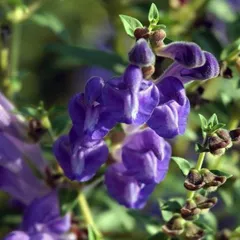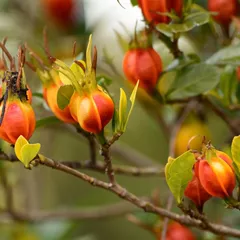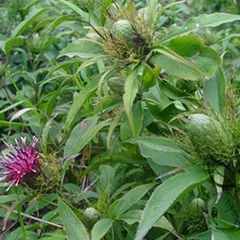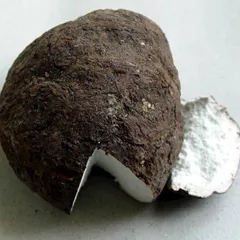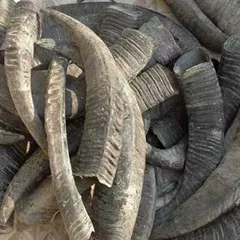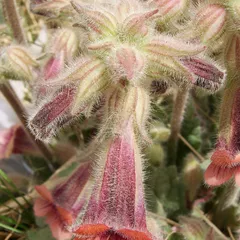Dao Chi San
Dao Chi San
Chinese: 导赤散
Pinyin: Dǎo Chì Sàn
Other names: Eliminating Redness Powder, Guide Out the Red Powder




Dao Chi San
Dao Chi San
Chinese: 导赤散
Pinyin: Dǎo Chì Sàn
Other names: Eliminating Redness Powder, Guide Out the Red Powder
Number of ingredients: 4 herbs
Formula category: Formulas that clear Heat from the Organs
- Clears the Heart
- Promotes urination
Contraindications: Use with caution in cases of Spleen and Stomach deficiency.
Source date: 1119 AD
Source book: Craft of Medicinal Treatment for Childhood Disease Patterns
The information provided here is not a replacement for a doctor. You shouldn't use it for the purpose of self-diagnosing or self-medicating but rather so you can have a more informed discussion with a professional TCM practitioner.
Dao Chi San is a 4-ingredient Chinese Medicine formula with Akebia Stems (Mu Tong) as a principal ingredient.
Invented in 1119 AD, it belongs to the category of formulas that clear Heat from the Organs. Its main actions are: 1) clears the Heart and 2) promotes urination.
On this page, after a detailed description of each of the four ingredients in Dao Chi San, we review the patterns and conditions that Dao Chi San helps treat.
The four ingredients in Dao Chi San

Mu Tong is a king ingredient in Dao Chi San. Like the name indicates, it means it has more power than other ingredients in the formula.
1. Akebia Stems (Mu Tong)
Part used: Dried stem
Nature: Cold
Taste(s): Bitter
Meridian affinity: HeartLungSmall intestine
Category: Herbs that drain Dampness
Mu Tong clears Heat from the Heart Channel in the upper body, and clears Heat and promotes urination within the Small Intestine Channel below.

Di Huang is a deputy ingredient in Dao Chi San. This means it helps the king ingredient(s) treat the main pattern or it serves to treat a coexisting pattern.
2. Unprepared Rehmannia (Di Huang)
Part used: Prepared dried root tuber
Nature: Cold
Taste(s): Sweet
Meridian affinity: HeartKidneyLiver
Category: Herbs that cool the Blood
Di Huang enters the Heart to cool the Blood as well as the Kidneys to nourish the Yin and generate Fluids (strengthening the Kidney Water), which controls Heart Fire.

Dan Zhu Ye is an assistant ingredient in Dao Chi San. This means that it either serves to reinforces the effect of other ingredients or it moderates their toxicity.
3. Lophatherum Herbs (Dan Zhu Ye)
Part used: Dried stem and leaf
Nature: Cold
Taste(s): Sweet
Meridian affinity: HeartSmall intestineStomach
Category: Herbs that clear Heat and purge Fire and/or clear Summer Heat
In general Dan Zhu Ye's main actions are as follows: "Clears Heat and aids thirst. Aids urination and drains Damp-Heat."
In the context of Dao Chi San, it is used because it is used to alleviate irritability by clearing Heat from the Heart.
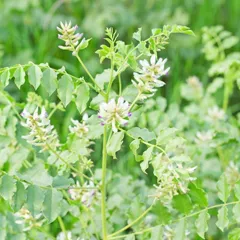
Gan Cao is an envoy ingredient in Dao Chi San. This means that it directs the formula towards certain area of the body and/or harmonizes the actions of other ingredients.
4. Liquorice (Gan Cao)
Part used: Dried root and rhizome
Nature: Neutral
Taste(s): Sweet
Meridian affinity: HeartLungSpleenStomach
Category: Tonic herbs for Qi Deficiency
Gan Cao treats painful urinary dribbling, in addition to resolving toxicity and harmonizing the actions of the other herbs in the formula.
Dao Chi San is used to treat Full-Heat in the Small Intestine

The Small Intestine is a so-called "Fu" Organ. Learn more about the Small Intestine in Chinese Medicine
Full-Heat in the Small Intestine
Pulse type(s): Overflowing (Hong), Rapid (Shu)
Symptoms: Insomnia Deafness Throat pain Mouth ulcers Restlnessness Tongue ulcers Abdominal pain Blood in urine Burning urination Scanty and dark urine Thirst for cold drinks Unconfortable heat sensation in the chest
Dao Chi San is sometimes prescribed by TCM practitioners to treat Full-Heat in the Small Intestine. This pattern leads to symptoms such as restlnessness, insomnia, tongue ulcers and mouth ulcers. Patients with Full-Heat in the Small Intestine typically exhibit overflowing (Hong) or rapid (Shu) pulses.
This pattern is closely associated with Heart Fire Blazing since both Organs are associated at the channel level and they belong to the Fire element in the Five Phases theory.
Heart Fire is transmitted to the Small Intestine and this interferes with its function of receiving and transforming as... read more about Full-Heat in the Small Intestine
Formulas similar to Dao Chi San
Long Dan Xie Gan Tang is 30% similar to Dao Chi San
Dang Gui Si Ni Tang is 29% similar to Dao Chi San
Zhu Ye Shi Gao Tang is 29% similar to Dao Chi San
Huang Tu Tang is 29% similar to Dao Chi San
Si Jun Zi Tang is 25% similar to Dao Chi San
Xi Jiao Di Huang Tang is 25% similar to Dao Chi San


